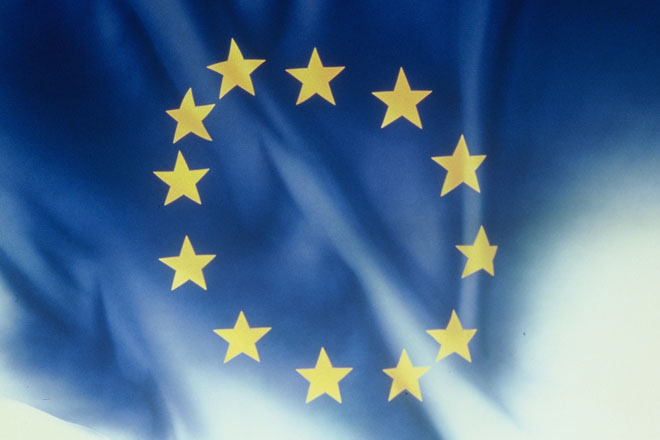The European Union (EU) delegation to Egypt held a press conference Wednesday as a new Danish EU presidency takes over for the first term of 2012, Ahram Online reported.
Delegation head, Ambassador Marc Franco, and Danish Ambassador to Egypt Christian Hoppe outlined the EU's priorities and plan of action at home as well as discussed the Union's specific relationship to Egypt in the course of the current political transition.
The speakers began by identifying the main concerns the union would internally face, such as dealing with the current euro debt crisis and entrenching fiscal discipline to ensure economic stability. And though Denmark is not part of the eurozone, as Hoppe explained, it hopes to do its best given its relatively better economic situation.
Ambassador Franco opened his remarks on the EU's relationship with the region by saying that the EU seeks to improve its funding capabilities after the Arab Spring, adding that the EU seeks to establish Deep and Comprehensive Free Trade Areas (DCFTAs), as had been discussed by EU Special Representative for the Southern Mediterranean Bernardino León with the Egyptian government in February.
The DCFTA's main objective is to gradually integrate foreign economies into the EU single market, as explained by the EU in its 2011 response to the Arab Spring.
The EU delegation singled out three Egyptian issues which it deems of the utmost importance. They are the democratisation process, the economic situation and civil society and human rights.
The ambassadors said the EU would closely watch elections, the drafting of the constitution as well as continue their discussions with Cairo about supporting post-uprising Egyptian growth. They also discussed the importance of hard earned rights like freedom of expression and assembly.
Regionally, the EU delegates mentioned three top issues: the Arab League's efforts to resolve crises following last year's uprisings, the Middle East peace process and water security in the Nile basin.
The delegation said it would be in close contact with the Arab League, saying it acknowledges the important role it played over the past year - especially in Libya and Syria - and assuring continued acceptance of the League's collective decisions.
It also acknowledged the importance of the Nile basin issue to Egypt, mentioning Egypt's dependence on the Nile for over 90 per cent of its water. The delegation also offered its support, primarily through the financing of water projects and by pushing towards cooperation rather than confrontation between basin countries.
Franco denied allegations that the EU stalled economic aid to Egypt due to the political instability and confirmed that 200 million euro of assistance had already been earmarked for Egypt in May.
Furthermore, major financial institutions agreed at the G8 summit in Deauville on releasing a large aid package to the region in the wake of the Arab Spring. But the process is not a fast one, Franco stated, and feasible investment dossiers must be prepared beforehand.
Addressing worries about the economy in relation to economic aid, Franco asked, "How do you expect foreign investment to flow if Egyptian investment is slumping?" The government must provide a healthy business environment for investment, which also takes time, stated the ambassador.
The European ambassadors were pressed to comment on ex-regime figures' European bank accounts and why, unlike Libya, Egypt's money hasn't been returned. A distinction must be made between the two countries, stated Franco. In the case of Libya, it was government money that was frozen and later unfrozen after a new leadership took power.
On the other hand, Franco confirmed that, as requested by the Egyptian government, the accounts of ex-Egyptian officials and public figures were in fact frozen. In order for these funds to flow back into Egypt, however, they must be proven to have been illegally accrued.
The ambassadors responded to questions regarding recent government raids on civil society organisations, reiterating previous criticism of such practices by the EU and pointing to Egypt's progress in its transition to democracy.
They also affirmed that the EU had issued multiple condemnations of the military's repeated violations of civil liberties - the ongoing beating and torture of protesters.
"You cannot expect a transition to democracy after years of tyranny by the shake of a magic wand," said Franco, commenting on the management of the transitional period by Egypt's military junta.
Franco said that there have been occurrences that make it look like Egypt is "still in Mubarak's days," but believes the country's overall direction is positive while asserting that the EU supports the Egyptian government and NGO's in their effort to pave the road toward democracy.
Finally, the EU delegation denied that being averse to the presence of Islamists in parliament or even the presidency in the future, saying they have met with representatives of the all the major parties in Egyptian politics, including the Muslim Brotherhood's political arm, the Freedom and Justice Party as well as the Salafist Nour Party.






